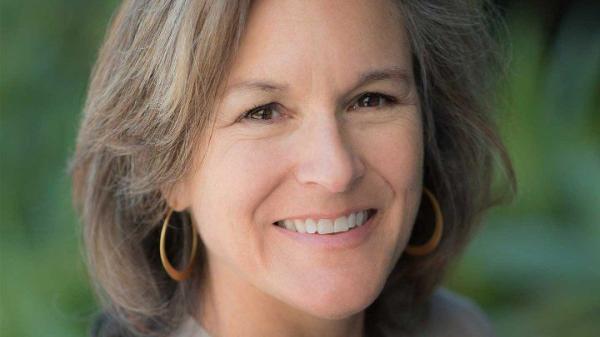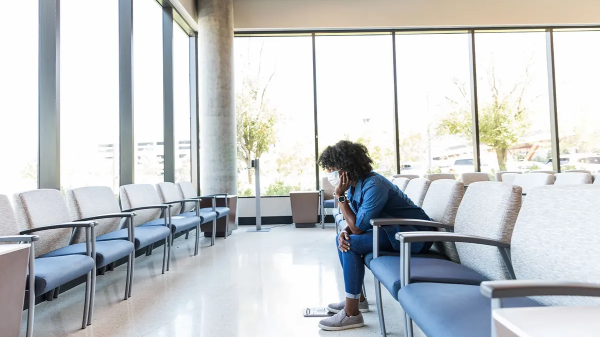By Milenko Martinovich and Katherine Tam
In the wake of the COVID-19 pandemic, UCSF School of Nursing students are answering the call to provide vital care to vulnerable communities affected by the coronavirus. From caring for those experiencing homelessness to testing thousands for COVID-19 in densely populated urban areas, the School’s students are helping to halt the spread of COVID-19.
Operation Safer Ground
Every week, nurse practitioner students like Monique Biega and Chelsea Gelbart head to the Radisson Hotel in Oakland where they don protective gear and screen 300 asymptomatic people experiencing homelessness in the battle against COVID-19. The ballroom, which hosted conferences and receptions just months ago, serves as the command center. Hotel rooms that beckoned vacationers now offer homeless individuals and families a safe place to stay and three meals a day.
People experiencing homelessness or living in large shelter settings are particularly vulnerable to COVID-19 and those with underlying medical conditions are susceptible to the critical impact of the virus, including higher mortality rates. California Gov. Gavin Newsom allocated $150 million to local governments to provide emergency housing for individuals experiencing homelessness.
Biega and Gelbart are part of a team of 20 UCSF adult-gerontology and family nurse practitioner students who are providing medical care to hundreds who have been moved off the streets into two hotels. The students are there under the guidance of faculty members Laura Wagner, Natalie Wilson and Michelle Buchholz. Shannon Smith-Bernardin, who is also a school faculty member, is on site as a consultant with Alameda County Health Care for the Homeless to help coordinate the clinical practices.
Known as Operation Safer Ground, the Alameda County project aims to protect the homeless population from, and reduce the spread of, the coronavirus. The partnership among local governments and multiple community partners provides the opportunity for a vulnerable population to have basic needs met, while removing barriers that prevented access to services. Meanwhile, the nurse practitioner students gain skills and experiences that, particularly during a historic pandemic, are not possible through textbooks.
The students screen for coronavirus symptoms and escalate cases to on-call medical personnel as needed. They connect individuals with primary care providers, provide referrals to substance use and mental health counseling, ensure they have medications, such as for seizures and diabetes, and link them to transitional housing services.
“We had someone with congestive heart failure whose medications weren’t working, so we had to send them to ER because they were deteriorating,” Biega said. “This population has complex medical needs that need to be met. We are providing baseline health care needs, but they need more help than what is available here.”
Most of the individuals are over the age of 60. Some are younger but have health conditions, such as HIV, cardiovascular, diabetes and lung disease, that put them at high risk for more critical outcomes in the event of a COVID-19 infection. Some are employed and own cars. Some are families with children. Biega and Gelbart are concerned about how their health needs will be met after the shelter-in-place order lifts.
“People experiencing homelessness are not a homogenous group. Their needs are really diverse,” Gelbart said. “A reality of the pandemic is a serious exposure of the vulnerabilities of our community. Housing has always been an important piece of health care. When you establish a quick intervention like this one, it’s important to build that out. This is just the beginning of the work that needs to be done.”
Supporting UCSF’s Response to COVID-19
From triaging patient calls to conducting contact tracing, School of Nursing students are actively engaged in UCSF’s COVID-19 response.
Since late March, nurse practitioner students have been triaging patient calls and educating patients through UCSF’s COVID-19 Patient Hotline and its Occupational Health 
Student Ericka Ledesma, right, with Robin Andersen, manager of the COVID Hotline.Employee Hotline. A number have joined UCSF teams in performing contact tracing and infection control to halt the spread of the coronavirus. In addition to providing health care support, the students are completing clinical hours necessary for academic progression while gaining real-world experience in responding to a global pandemic.
“Answering patient calls on the COVID hotline has felt extremely fulfilling because so many are frozen with anxiety for themselves or a loved one and we are able to help them get the exact level of care they need,” said NP student Natalie Palombini. “It has also been great to provide these patients education and guidance on practices to effectively quarantine and stay well, given there are so many conflicting sources out there.”
Testing for COVID-19 in the Mission District
Master’s student Jakki Carrillo was one of about 20 UCSF nursing students who volunteered for the project, Unidos En Salud, a partnership involving Mission community organizers in the Latino Task Force for COVID-19, UCSF researchers, the City and County of San Francisco and the San Francisco Department of Public Health. Nearly 3,000 residents and workers from the Mission District were tested for COVID-19 over a four-day period in late April.
“This was an opportunity to check in on my community, the Latinx community,” Carrillo said.

Student Katie Machado conducts COVID-19 testing in the Mission District. (Photo credit: Barbara Ries).Initially, Carrillo was concerned that Latinx participants may have to disclose their immigration status to participate, as well as if proper follow-up protocols were in place. Her concerns quickly subsided.
“Once I understood the IRB [Institutional Review Board] process and the level of community involvement, I felt better about the approach,” Carrillo said. “They were very transparent about where the data was going.”
Outfitted in full PPE gear including a jumpsuit over her scrubs, an N-95 mask, face shield and gloves, Carrillo spent an 11-hour day collecting about 400 microliters of blood and swab samples from each participant’s nose and mouth. Testing each participant took about six to 10 minutes, allowing Carrillo time to connect with each person.
“We spent a lot of time talking to people and seeing how important our role was,” she said. “That was one of most meaningful things from being there, talking to people and getting to hear their concerns and questions about COVID-19. It was a good reminder of why I chose this work and UCSF because its approach to health care is rooted in public health.”
“Street Nurses” Aid Homeless Population
Before the pandemic, the student-led Street Nursing team – Taylor Cuffaro, Megan Grant, Katie Machado, Tessa Rubin and Janelle Silvis – provided basic nursing care, triage and conducted routine screenings like blood pressure checks and wound inspections to individuals dealing with homelessness in San Francisco and Oakland.
Unable to serve this population due to shelter-in-place orders in response to the COVID-19 pandemic, the team ceased operations for three weeks spanning March and April. 
From left, Street Nursing students Taylor Cuffaro, Janelle Silvis and Megan Grant.
But they weren’t going to let a global pandemic slow them down.
Upon returning, they shifted from their usual services and became supply providers. The team has distributed over 300 kits with donated supplies to homeless individuals in San Francisco and Oakland. Among the items in the kits are water, food, hygiene supplies, facemasks and a booklet Silvis created with information on how homeless individuals can protect themselves during the pandemic and where they can go for care. They are also distributing donated tents and sleeping bags to individuals living on the street.
“COVID-19 has made our nursing practice really challenging, but we felt like we had to do something,” Silvis said. “The pandemic doesn’t affect just one type of person, but this population is getting the short end of the stick. We want to do our part.”
Replenishing Blood Banks

Robert Gutierrez, RN, right, a nurse with the Red Cross, administers a blood draw for donor Rich Juarez, at a blood drive organized with the UCSF School of Nursing to offset shortages caused by the COVID-19 pandemic, held in the Millberry Gym, at the Parnassus Heights campus. (Photo credit: Susan Merrell)
As blood supplies run low regionally and across the country, School of Nursing students stepped up to help organize the School’s May 19 blood drive, which drew about 50 donors during the all-day event. In addition, students in the Master’s Entry Program in Nursing are spearheading a May 29 blood drive in the community.
“As soon as the pandemic hit, I wanted to help,” said Kim Juarez, a student in the Master’s Entry Program in Nursing who helped organize the May 19 blood drive on campus. “Throughout my clinical time this year, I have witnessed the life-saving capabilities of donated blood for patients. These patients and their families were my motivation and inspiration to pay it forward in hopes of saving more lives in the future.”




